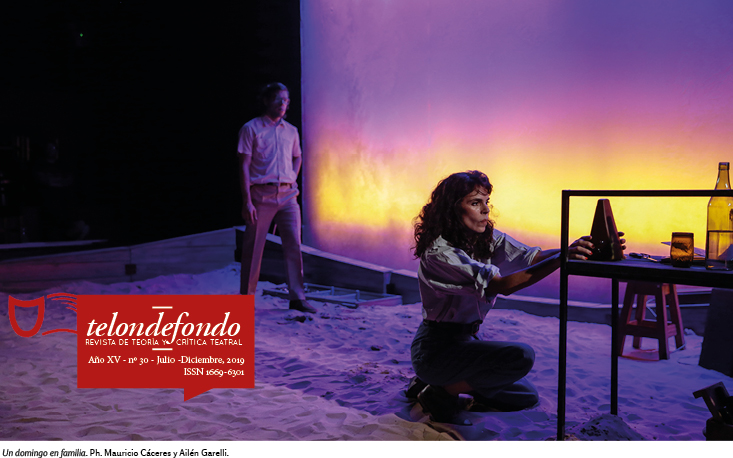Polyphony and rhapsodization in Juan Pablo Gómez’s staging of "Un domingo en familia" by Susana Torres Molina
Abstract
In critical approaches of what has been called postmodern theatre (Pavis, 1990) or postdramatic theatre (Lehmann, 2013), polyphony and rhapsodization appear as two theoretical concepts widely used to analyze contemporary stagings. Based on the premise that these categories are still pertinent to analyze the theatrical realizations that are being presented today since they effectivly describe many of the procedures that define them, this article uses this notions to approach the staging of Susana Torres Molina’s "Un domingo en familia" (Juan Pablo Gómez, 2019). The aim of this paper is to show how the staging continues and amplifies the stylistic guidelines of the text linked to polyphony and rhapsodization as ways of highlighting the contradiction of certain socially crystallized notions and points of view. Through the exploration of different scenic languages, but in particular of the rhetorical-expressive resources related to sound, the production tries to avoid silencing voices or closing senses. This creates a confusing and discordant symphony that, while questioning the militancy of the 1970s, interrogates its resonances in the present.Downloads
Los autores/as que publiquen en esta revista aceptan las siguientes condiciones:
-
Los autores/as [traductores] conservan los derechos de autor y ceden a la revista el derecho de la primera publicación, con el trabajo registrado con Licencia Creative Commons Atribución-NoComercial-CompartirIgual 4.0 Internacional, que permite a terceros utilizar lo publicado siempre que mencionen la autoría del trabajo y a la primera publicación en esta revista.
-
Los autores/as pueden realizar otros acuerdos contractuales independientes y adicionales para la distribución no exclusiva de la versión del artículo publicado en esta revista (p. ej., incluirlo en un repositorio institucional o publicarlo en un libro) siempre que indiquen claramente que el trabajo se publicó por primera vez en esta revista.
-
Se permite y recomienda a los autores/as a publicar su trabajo en Internet (por ejemplo en páginas institucionales o personales).











